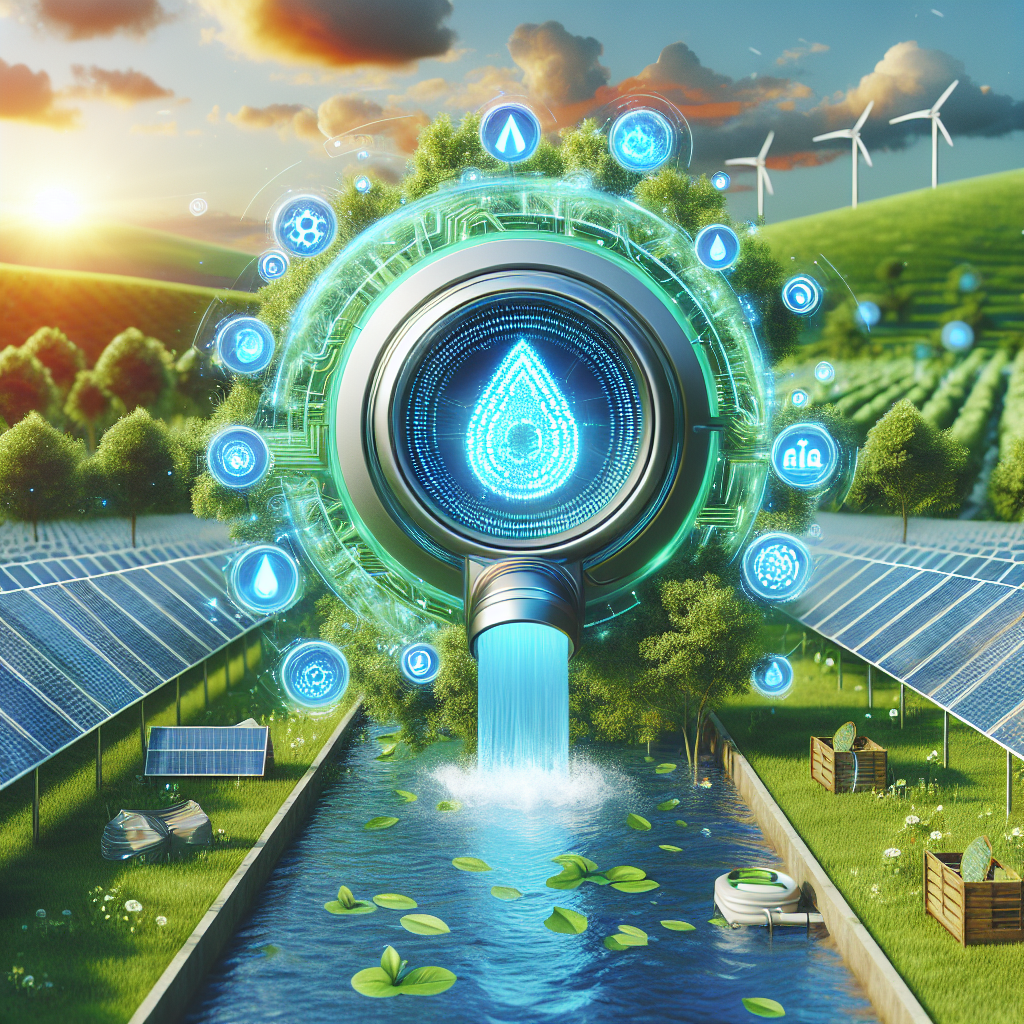In recent years, the world has been facing a growing water crisis due to climate change, population growth, and increasing water pollution. Sustainable water conservation has become a pressing issue that requires innovative solutions to ensure the availability of clean water for future generations. Artificial Intelligence (AI) has emerged as a powerful tool in addressing this challenge, offering advanced technologies that can help monitor and manage water resources more efficiently. In this article, we will explore how AI-powered solutions can contribute to sustainable water conservation efforts.
AI-powered solutions for water conservation
AI technologies have the potential to revolutionize the way we manage water resources by providing real-time data, predictive analytics, and automation capabilities. Here are some of the key AI-powered solutions that can help in sustainable water conservation:
1. Smart water management systems: AI can be used to develop smart water management systems that can monitor water usage, detect leaks, and optimize water distribution in real-time. These systems can help water utilities and municipalities to identify inefficiencies in their water networks and take proactive measures to reduce water wastage.
2. Predictive analytics: AI algorithms can analyze historical data and weather patterns to predict water demand and supply fluctuations. By using predictive analytics, water utilities can optimize their water distribution networks and reduce the risk of water shortages during droughts or other emergencies.
3. Water quality monitoring: AI-powered sensors can be deployed in water bodies to monitor water quality in real-time. These sensors can detect contaminants, pollutants, and harmful bacteria, allowing authorities to take immediate action to prevent water contamination and protect public health.
4. Precision agriculture: AI technologies can be used in agriculture to optimize water usage and increase crop yield. By analyzing soil moisture levels, weather conditions, and crop data, AI algorithms can provide farmers with recommendations on when and how much water to irrigate their fields, leading to more efficient water use and sustainable farming practices.
5. Desalination and water treatment: AI can improve the efficiency of desalination plants and water treatment facilities by optimizing energy consumption, reducing waste, and improving water quality. AI-powered sensors and control systems can monitor water treatment processes and adjust parameters in real-time to ensure optimal performance.
6. Flood prediction and management: AI algorithms can analyze weather data and historical flood patterns to predict and prevent flooding events. By using real-time data and predictive analytics, authorities can implement early warning systems and emergency response plans to minimize the impact of floods on communities and infrastructure.
FAQs about AI-powered solutions for sustainable water conservation
Q: How can AI help in reducing water wastage?
A: AI-powered smart water management systems can detect leaks, monitor water usage, and optimize water distribution to reduce water wastage in water networks.
Q: Can AI predict water demand and supply fluctuations?
A: Yes, AI algorithms can analyze historical data and weather patterns to predict water demand and supply fluctuations, helping water utilities to optimize their water distribution networks.
Q: How can AI improve water quality monitoring?
A: AI-powered sensors can be deployed in water bodies to monitor water quality in real-time, detecting contaminants, pollutants, and harmful bacteria to prevent water contamination.
Q: How can AI help in precision agriculture?
A: AI technologies can analyze soil moisture levels, weather conditions, and crop data to provide farmers with recommendations on when and how much water to irrigate their fields, leading to more efficient water use and sustainable farming practices.
Q: How can AI optimize desalination and water treatment processes?
A: AI can improve the efficiency of desalination plants and water treatment facilities by optimizing energy consumption, reducing waste, and improving water quality through real-time monitoring and control systems.
In conclusion, AI-powered solutions have the potential to revolutionize sustainable water conservation efforts by providing real-time data, predictive analytics, and automation capabilities. By leveraging AI technologies, we can monitor and manage water resources more efficiently, reduce water wastage, protect water quality, and improve water distribution networks. As the world faces a growing water crisis, it is essential to invest in innovative AI-powered solutions to ensure the availability of clean water for future generations.

